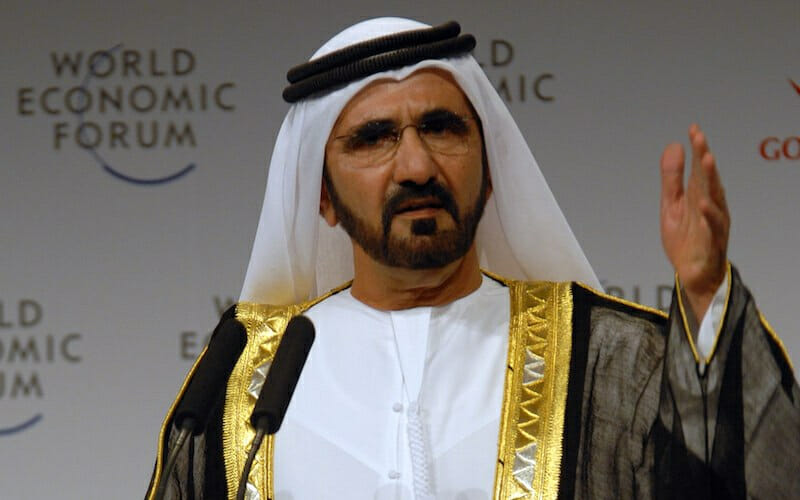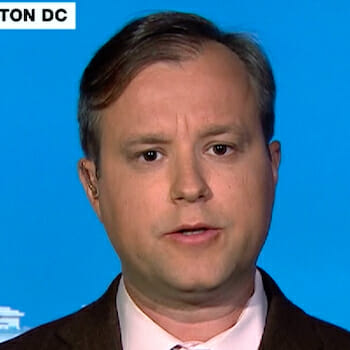
Israel: A Strategic Partner for the UAE?
Despite the city of Dubai’s remarkable success in transforming herself into a sprawling western-style financial hub, the United Arab Emirates (UAE) faced its most significant diplomatic crisis to-date in 2006.
As American lawmakers sought to challenge the Bush administration’s national security credentials, leaders of the House of Representatives signaled that they would block a commercial deal and prevent the UAE state-owned Dubai Port World from managing six U.S. ports, including New York, Newark, Baltimore, and Miami.
Although the UAE eventually withdrew its bid, Abu Dhabi apparently was taken by surprise by the congressional opposition and subsequently launched a massive public relations campaign to convince Washington policymakers that the UAE was not only a reliable U.S. ally, but that the Emirates shared Washington’s strategic interests – which, by extension, included those of Israel.
Within this context, establishing a diplomatic channel to engage with the Jewish State and its supporters in Washington became a matter of national priority for the UAE.
Immediately following the Dubai Port World controversy, the UAE appeared fearful of losing both access to U.S. military hardware as well as participation in joint intelligence sharing, especially on issues pertaining to Iran. Abu Dhabi also feared that U.S. investments could be hampered, and that the scandal could affect diplomatic and economic ties with Washington.
To that end, Abu Dhabi sought to lay the controversy quickly to rest. The UAE subsequently sought U.S. political and diplomatic support for its bid to permanently host the United Nations’ International Renewable Energy Agency (IRENA).
To secure U.S. diplomatic support for this initiative, the Emiratis engaged at the same time America’s Jewish community. Partially to ensure that no Congressional opposition would take hold (as it did amid the Dubai Port World controversy), they stressed that by hosting IRENA, “all” UN members – a reference to Israel – would be welcome to fully participate.
With tacit Israeli support, American Jewish groups vigorously supported the initiative while championing quiet diplomatic efforts to ensure Israeli business and professional organizations access to international conferences and conventions held across the UAE.
Ever since IRENA was officially established in Abu Dhabi in 2008, Israeli diplomatic representatives and ministers have travelled to the Emirati capital for meetings pertaining to the UN agency. It is also assumed that Israeli officials have used the venue to hold side meetings with their Emirati counterparts on issues of mutual interest, while at the same time maintaining a diplomatic backchannel.
In parallel with this diplomatic initiative, Abu Dhabi and Washington signed the so-called 123 Agreement for Peaceful Civilian Nuclear Energy Cooperation on December 17, 2009. The agreement enables the UAE to receive nuclear know-how, materials, and equipment from the U.S. As part of the agreement, the UAE committed to forgo domestic uranium enrichment and the reprocessing of spent fuel. It also signed the International Atomic Energy Agency (IAEA)’s Additional Protocol, which institutes a more stringent inspections regime on the UAE’s nuclear activities. The UAE’s agreement to forgo enrichment and reprocessing has become known as the non-proliferation “gold standard” for nuclear cooperation agreements, because the signatory renounces the sensitive technology and capabilities that can be used to produce a nuclear weapon.
Prior to signing the 123 Agreement, Emirati officials reportedly also reassured the Israeli defense establishment that their civilian nuclear program would be fully compliant with the IAEA and that its program would be fully transparent.
With U.S. Congressional support, a 2009 U.S.-UAE bilateral agreement for peaceful nuclear cooperation did not meet with any objection from influential American Jewish organizations, such as the American Israel Public Affairs Committee, the American Jewish Committee, and the Anti-Defamation League.
The UAE nuclear power program, a joint venture between state-owned Emirates Nuclear Energy Corp. and Korea Electric Power Corp., is expected to be completed between 2017 and 2020 and to cost $30 billion.
Meanwhile, it is possible that Israel and the UAE have established a forum for crisis communications, which allegedly includes intelligence cooperation on “senior threats.” Observers and Gulf Cooperation Council (GCC) officials believe that Iranian miscalculations in the Persian Gulf could set the entire region ablaze, which would draw Israel and the UAE closer.
Whether Israel’s formal lines of crisis communications include a direct military hotline between the defense ministry in Tel Aviv and its counterparts in the Gulf remains unclear. With Israel and GCC members viewing Iran as an increasingly serious threat, Tel Aviv, and the UAE in particular, began deepening cooperation in the security sphere during 2006. To that end, Israel granted the UAE access to the Israeli-built Eros B satellite and its high-resolution imagery in addition to services it already received from its precursor, the Eros A, as reported in Defense News in 2009.
Although Eros A and B appear to be commercial knock-offs of Israel’s Ofeq spycraft, both satellites and Ofeq are built by Israel Aerospace Industries, the country’s primary defense contractor. While the UAE swiftly denied the Defense News report at the time, it is widely known that the Jewish state continues to export communication, homeland security, and civilian technology against terrorism to several GCC states, including the UAE.
On the diplomatic front, shortly after Israel’s 2005 withdrawal from the Gaza Strip, Dubai led what appears to be a series of GCC goodwill gestures by which Bahrain, Kuwait, Oman, and Qatar offered to officially lift their boycott of Israeli goods in return for progress on the Israeli-Palestinian peace process.
As part of that effort, Israel established trade offices in Oman and Qatar. Diplomatic relations between the Jewish state and the GCC seemed at the time to be on a trajectory toward normalization. Conflicts between Israelis and Palestinians in the 2000s, however, brought an official end to that and the Israeli trade offices in Muscat and Doha were forced to close down.
In the case of Dubai, however, the Israeli trade office remained open until the Mossad’s alleged assassination of Hamas operative, Mahmoud al-Mabhouh, in January 2010. Consistent with long-standing Israeli policy, the Jewish state has never confirmed or denied the report. It prefers to remain evasive about its regional policies and, in particular, its intelligence operations.
Prior to the 2010 Mossad operation, Israel-UAE bilateral trade is believed to have exceeded $1 billion between 2006 and 2009. It is, however, widely believed that Emirati-Israeli relations ultimately collapsed following the Dubai assassination. Nonetheless — and despite no official trade relations– Israeli companies continue to export a host of civilian national security technologies, as well as water and irrigation technologies, to the GCC by means of straw companies established in Europe. Israelis are also involved in Dubai’s diamond market, among other industries, and invest in real estate using their second passports.
Looking ahead, Israel-UAE relations will most likely be about much more than trade. Even if the absence of official diplomatic relations hinders prospects for better relations in certain areas between the two countries – most recently demonstrated by the controversy surrounding Israeli judo star Tal Flicker’s gold medal at the Abu Dhabi Grand Slam – bilateral relations are set to grow. In fact, the UAE is the only member of the GCC which took part in international military exercises that involved the Israeli Air Force in Greece and in the United States.
At this current juncture, Iranian-backed forces from the Levant to Yemen are raising concerns in Israel and the GCC, particularly as Daesh has lost its grip on major strongholds and militias such as the Popular Mobilization Units appear to be filling space in Iraq. Officials in Abu Dhabi and Tel Aviv appear to see a low-profile Emirati-Israeli strategic partnership as being not only viable, but also immensely valuable to both given the extent to which they view threats in the tumultuous Middle East through similar lens.
This article was originally posted in Gulf State Analytics.

